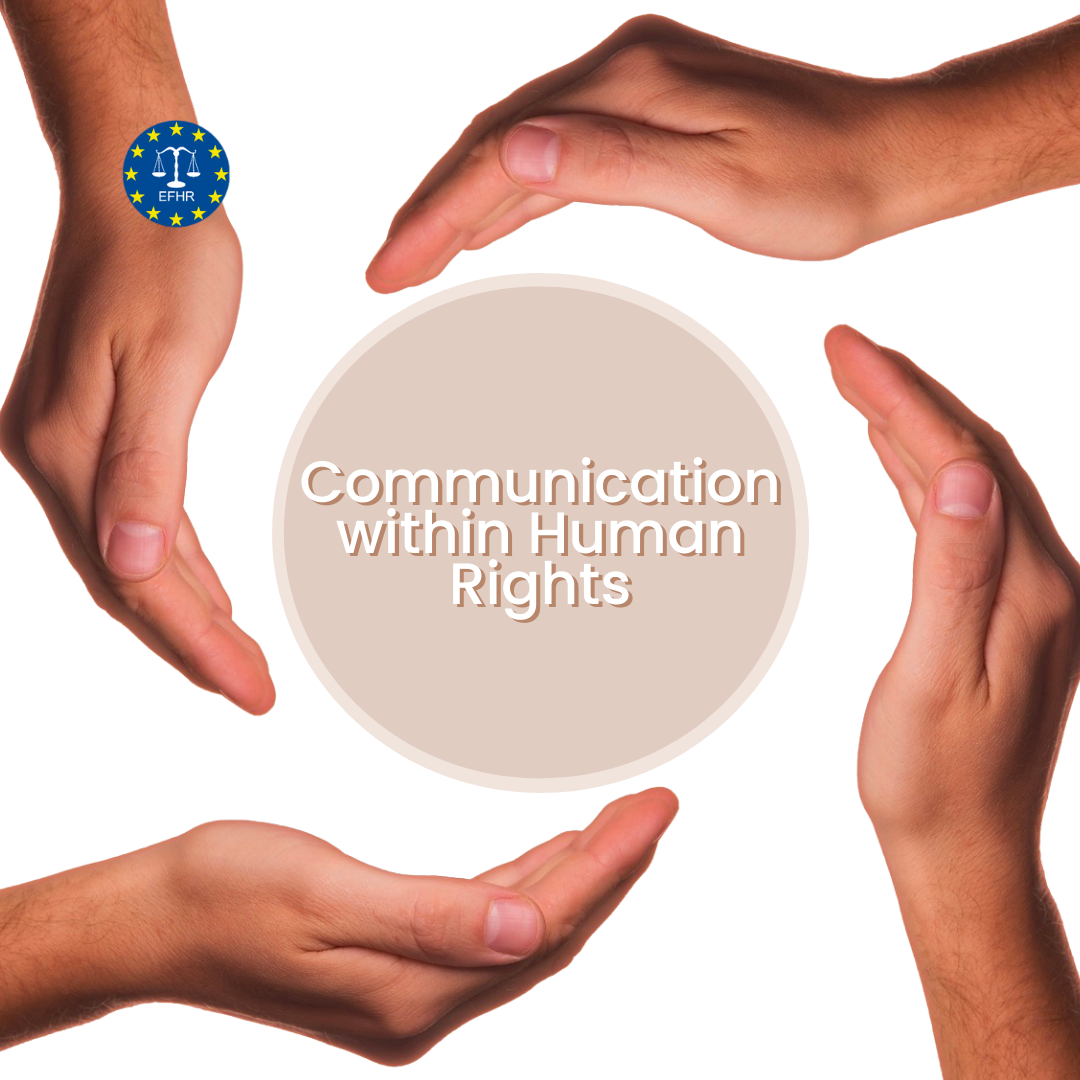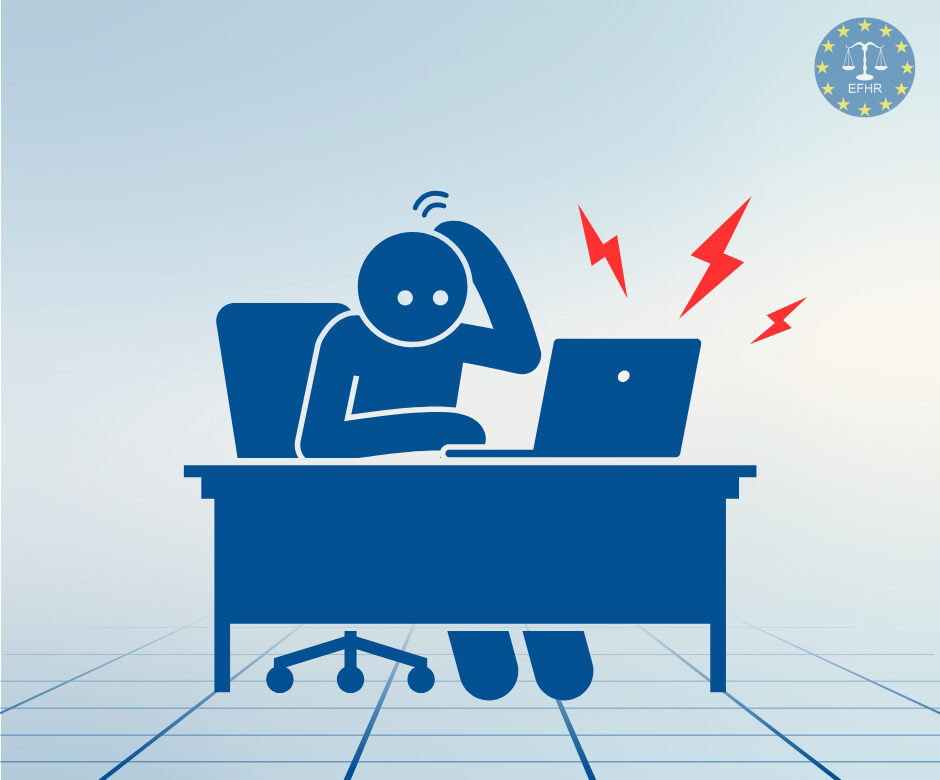- 2022/04/25
Communication within Human Rights

Nowadays humanity is a very common term, we hear it when we hear about crises and wars and about populations in situations of risk. However, in order to understand how the concept of humanity came to be used in this context, we must first think about how societies and populations attributed the causes of their ills related to disasters to divine punishments and forces of nature. The term humanity arose because of the need for outside help so that these people could rebuild what was destroyed.
The case of Ukraine and Russia caused a new picture to emerge in this period: the great evils that affect humanity have a greater impact on the most vulnerable societies. Those responsible are not only providence and/or nature or the conditions of society. It is the very history of the “winners” that has drawn the division between the most and least vulnerable to the impacts of major disasters and, therefore, it would now be up to this less vulnerable side, on behalf of humanity, to identify with these victims. In this context, the role of communication is relevant as a catalyst of the so-called humanitarian actions that started to consider disasters and catastrophes not only the “natural” ones, but also those resulting from direct human actions.
The world has changed and so has the format of conflicts. However, over time the international community has fought to make conflicts more humane and less violent, signing various treaties and conventions to achieve this goal.
When is lying disseminated more generally? In times of war. And when is the temptation to restrict freedom of speech and freedom of the press felt most? In the time of war. And when do we have to resist not to imitate authoritarian regimes? In times of extreme crisis or war.
The EU Treaties do not contain any specific provision on communication policy. However, the Charter of Fundamental Rights of the European Union provides all EU institutions with a common framework for linking the achievements of the European Union with its fundamental values when communicating with the public. Communication connects us to the network of human beings, the way we develop as individuals depends very much on how successfully we build these networks. Sensitive communication can lead to building, planning and managing a positive image of a given entity (individual and collective). Communication is the driving force, it is an instrument of integration and instruction that links today with tomorrow, interacting over the segments and all the people of the community. Its importance is global.
Telecommunications have made globalisation possible, distances have diminished and the facts that happen are now public knowledge (and in an automatic way). We have become dependent on this connectivity and its absence certainly shakes our lives. Despite all the transformations, there is still no influence to dampen social differences. It is possible to change thoughts and behaviour by managing content in the media and this applies in particular to communication for human rights. Every human being has the right to be equal before the law and is entitled, without any distinction, to equal protection of the law, so it is essential to adopt an inclusive language – to use communication that does not offend or invisibilize anyone.
Society has undergone major changes in recent years. We live in an increasingly global world where different cultures, races, genders or identities are progressively interconnected. And our needs should be met equally for everyone. Communication is a channel of inclusion and diversity that makes the right of human beings to be treated equally, without any distinction, possible through the adoption of more conscious communication. Sensitive communication collaborates to denounce machism, feminism, xenophobia, gender discrimination, racism, etc. all concepts that make some people superior to others in any way, so it is important to value and respect diversity.
Conflicts, epidemics and disasters call for humanitarian intervention. Whether these are natural or man-made does not matter, humanitarian intervention has always had disasters as a fundamental part of its justification for aid. Accessibility is about letting people in on the party, inclusion is about asking people to dance.
The situation in Ukraine is not something recent, according to UN reports, Ukrainians have been suffering human rights violations. Ukraine has been at the centre of disagreements between Russia and the West practically since it declared independence from Moscow in 1991. The situation worsened in 2014 after Russia annexed the Crimean peninsula. Since then, the escalation of tension has escalated, until the full-scale invasion that we can see today.
The Ukrainian people have been suffering from human rights violations since the protests escalated in mid-2014, not to mention that all communication made towards humanity was and is narrowly political and strategic. Under international law all peoples have the right to determine freely, without external interference, their political status and to pursue their economic, social and cultural development.
The Human Rights office has warned about the failure to resolve the conflict that began in 2014, the devastating effect is notorious on civilians. The protection of people has not been respected and the deaths caused by the conflict do not respect human dignity.
The devastating consequences caused by the scale of the conflict between Russia and Ukraine are still going on in the middle of 2022, it is a situation dragging on since 2014, which causes threat against the lives of civilians, shortage of water and food as well as the opportunity to life (prevention of movement of the inhabitants of the affected areas).
Social and economic rights have already been negatively affected by the conflict, but it is important to highlight that when it comes to the sub-theme of communication beyond disinformation, which can be considered a political consequence, the lack of consideration for civilians also falls far short of what protection against violence and human identity are.
There are striking differences in the way the Russian and Ukrainian leaders communicate with the citizens of their countries and with the international community. Volodymyr Zelensky uses social networks as a direct way of getting information to the population, while Vladimir Putin is more institutional, preferring television as a way of conveying his message.
We are facing incredible times, filled with sadness and fear, as if the pandemic was not enough. And precisely now it is of utmost importance to keep being human and care for humanity. European Foundation of Human Rights encourages peace and collaboration among a wide diversity of professionals from all over the world with a focus on human rights,fuelled by our common passion for languages and communication.
Prepared by Inês Paiva, Public Relations Intern from Portugal.
Sources:
- https://www.un.org/peacebuilding/sites/www.un.org.peacebuilding/files/1._ohchr_thematic_paper_on_the_contribution_of_hr_to_sp_and_recommendations.pdf
- https://www.un.org/press/en/2022/ga12406.doc.htm
- https://carnegieeurope.eu/strategiceurope/86525
- https://www.cairn.info/revue-cahiers-sens-public-2014-1-page-65.htm
- https://www.vox.com/2014/9/3/18088560/ukraine-everything-you-need-to-know
- https://www.hrw.org/world-report/2020/country-chapters/ukraine
- https://reliefweb.int/report/ukraine/situation-human-rights-ukraine-stemming-russian-aggression-ahrcres491-advance-edited



